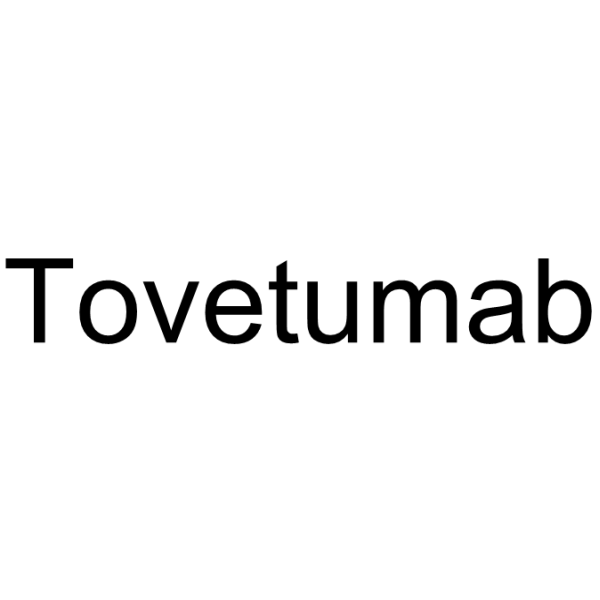1243266-04-7
| Name | Tovetumab |
|---|
| Description | Tovetumab (MEDI-575) is an anti-PDGFRα monoclonal antibody that selectively blocks the PDGFRα signal transduction. Tovetumab can be used in the research of glioblastoma and non-small cell lung cancer (NSCLC)[1][2]. |
|---|---|
| Related Catalog | |
| Target |
PDGFRα |
| In Vitro | Tovetumab (10-100 nM, 1-2 h) binds to PDGFRα on H1703 cells (determined by Alexa647-labeled tovetumab)[1]. Tovetumab (0.001-10 nM, 10 min) inhibits ligand-induced phosphorylation of human PDGFRα in MG-63 cells[2]. Tovetumab (0.001-100 nM, 72 h ) inhibits Ligand-induced proliferation of cancer-associated fibroblasts (CAFs) [2]. |
| In Vivo | Tovetumab (0.6-60 mg/kg, i.v.) blocks the PDGFRα-mediated elimination of PDGF-AA, leading to an increase in circulating PDGF-AA level in Cynomolgus monkeys[1]. Tovetumab (10 mg/kg, i.p., twice a week) inhibits tumor growth in U118 glioma xenografts[2]. Animal Model: Cynomolgus monkey[1] Dosage: 0.6, 6.0, and 60 mg/kg Administration: Intravenous injection (i.v.) Result: Induced > 100- fold increases in circulating concentrations of PDGF-AA. Animal Model: U118 glioma xenografts (CB17 SCID)[2] Dosage: 10 mg/kg Administration: Intraperitoneal injection (i.p.), twice per week. Result: Produced 101% inhibition of tumor growth. |
| References |
| No Any Chemical & Physical Properties |
